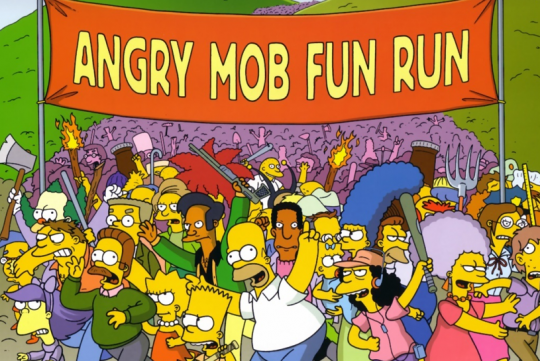There's a fantastic article in the new Atlantic coauthored by social psychologist and professor Jonathan Haidt and the president of the Foundation for Individual Rights in Education Greg Lukianoff on the deleterious effects of trigger warnings and the such on college campuses. It's long but well worth your time; print it out and read it at lunch. I want to briefly focus on two things.
The first is Haidt and Lukianoff's term for the plague of problematicizing that has descended on college campuses: "vindictive protectiveness." They do a good job of highlighting the big difference between the political correctness crusades of the 1980s and early 1990s and the outrage mongering that goes on today:
The press has typically described these developments as a resurgence of political correctness. That’s partly right, although there are important differences between what’s happening now and what happened in the 1980s and ’90s. That movement sought to restrict speech (specifically hate speech aimed at marginalized groups), but it also challenged the literary, philosophical, and historical canon, seeking to widen it by including more-diverse perspectives. The current movement is largely about emotional well-being. More than the last, it presumes an extraordinary fragility of the collegiate psyche, and therefore elevates the goal of protecting students from psychological harm. The ultimate aim, it seems, is to turn campuses into "safe spaces" where young adults are shielded from words and ideas that make some uncomfortable. And more than the last, this movement seeks to punish anyone who interferes with that aim, even accidentally. You might call this impulse vindictive protectiveness. It is creating a culture in which everyone must think twice before speaking up, lest they face charges of insensitivity, aggression, or worse.
The vindictive nature of the new PC is obvious and everywhere; just read Jon Ronson's So You've Been Publicly Shamed to get a taste of what's going on. It may even be a fundamental part of human nature, one given new, nastier life by the interconnectedness and level playing fields we celebrate so fiercely. Haidt and Lukianoff add value here by highlighting the protectiveness and suggesting a way to disempower the outrage mobs that have overrun our campuses:
Since 2013, new pressure from the federal government has reinforced this trend. Federal antidiscrimination statutes regulate on-campus harassment and unequal treatment based on sex, race, religion, and national origin. Until recently, the Department of Education’s Office for Civil Rights acknowledged that speech must be "objectively offensive" before it could be deemed actionable as sexual harassment—it would have to pass the "reasonable person" test. To be prohibited, the office wrote in 2003, allegedly harassing speech would have to go "beyond the mere expression of views, words, symbols or thoughts that some person finds offensive."
But in 2013, the Departments of Justice and Education greatly broadened the definition of sexual harassment to include verbal conduct that is simply "unwelcome." Out of fear of federal investigations, universities are now applying that standard—defining unwelcome speech as harassment—not just to sex, but to race, religion, and veteran status as well. Everyone is supposed to rely upon his or her own subjective feelings to decide whether a comment by a professor or a fellow student is unwelcome, and therefore grounds for a harassment claim. Emotional reasoning is now accepted as evidence. ...
The biggest single step in the right direction does not involve faculty or university administrators, but rather the federal government, which should release universities from their fear of unreasonable investigation and sanctions by the Department of Education. Congress should define peer-on-peer harassment according to the Supreme Court’s definition in the 1999 case Davis v. Monroe County Board of Education. The Davis standard holds that a single comment or thoughtless remark by a student does not equal harassment; harassment requires a pattern of objectively offensive behavior by one student that interferes with another student’s access to education. Establishing the Davis standard would help eliminate universities’ impulse to police their students’ speech so carefully.
They also suggest that college campuses officially ask (not demand, just ask) professors to refrain from using "trigger warnings" on their syllabi, thus giving those who eschew them a modicum of institutional backing when some whinging crybaby who didn't get the grade she thought she deserved falls back on claims she was triggered during class discussions.
Like I said, you should read the whole thing; I haven't even addressed the ways in which "trigger warning" culture is literally damaging the brains of our young people.
